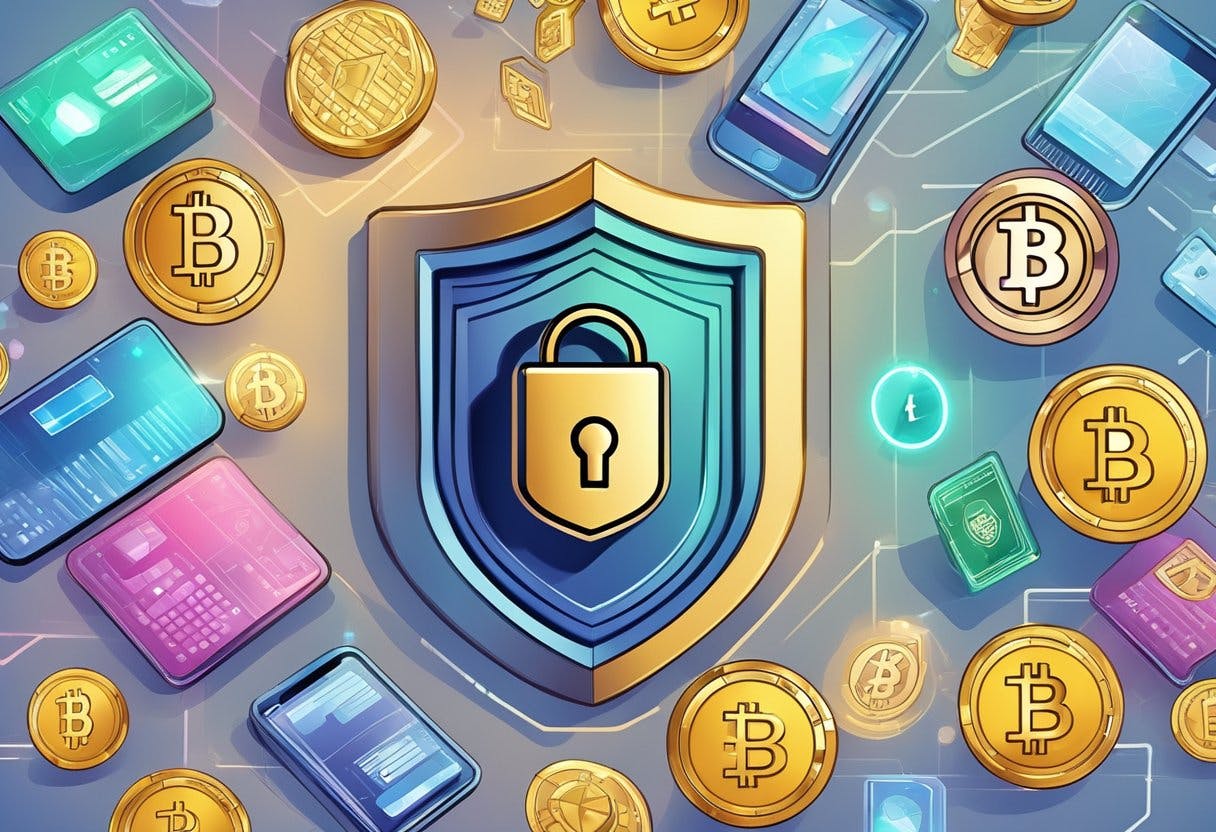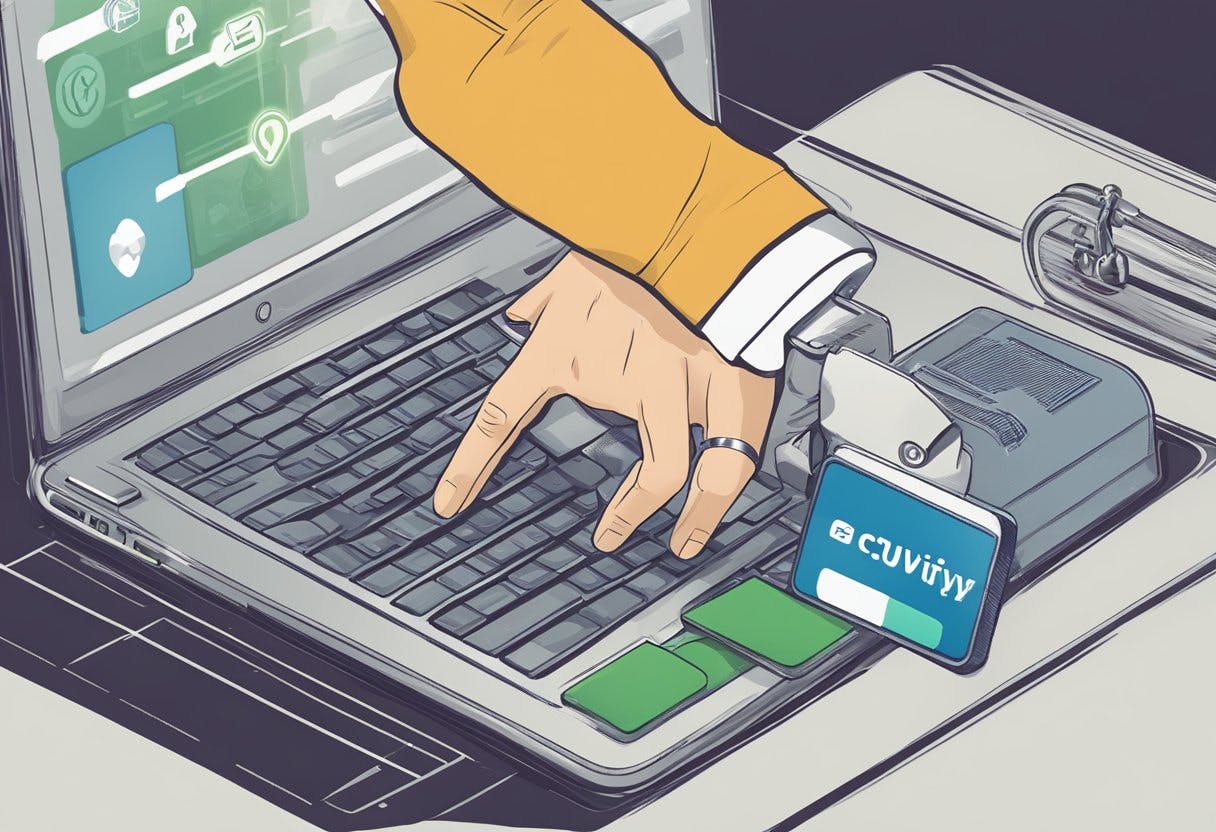
Cryptocurrency wallets are digital wallets that allow users to store, send, and receive digital assets such as Bitcoin, Ethereum, and other cryptocurrencies. These wallets are essential for anyone who wants to invest in digital assets, as they provide a secure way to store and manage these assets. However, with the increasing popularity of digital assets, the number of wallet options available has also increased, making it difficult for users to choose the right one.

Understanding Cryptocurrency Wallets is crucial to ensure the safety of digital assets. There are two main types of wallets: hot wallets and cold wallets. Hot wallets are connected to the internet and are more vulnerable to hacking and theft, while cold wallets are offline and therefore more secure. In addition to these two types, there are also desktop, mobile, and hardware wallets, each with its own set of features and benefits.
Securing Your Digital Assets is essential to prevent theft and loss. While wallets provide a secure way to store digital assets, they are not immune to threats. Users need to take precautions such as using strong passwords, enabling two-factor authentication, and keeping their private keys safe. Choosing the right wallet is also crucial, as different wallets offer different levels of security and convenience.
Key Takeaways
- Understanding the different types of wallets is essential to choosing the right one.
- Securing digital assets requires taking precautions such as using strong passwords and enabling two-factor authentication.
- Choosing the right wallet is crucial to ensuring the safety of digital assets.
Understanding Cryptocurrency Wallets

Cryptocurrency wallets are digital wallets that store cryptocurrencies like Bitcoin, Ethereum, and Litecoin. They are used to send and receive cryptocurrencies, and to keep track of their balance. In this section, we will cover the basics of cryptocurrency wallets, including what they are, how they work, and the different types of wallets available.
What Is a Crypto Wallet?
A cryptocurrency wallet is a software program that stores private and public keys. It interacts with various blockchain networks to enable users to send and receive digital currency and monitor their balance. Simply put, a cryptocurrency wallet is a digital wallet that stores your digital assets.
Public and Private Keys Explained
Cryptocurrency wallets operate based on the concept of public and private keys. A public key is a long string of characters that serves as your wallet address, allowing others to send you cryptocurrency. A private key is a secret code that allows you to access your cryptocurrency and sign transactions. It is essential to keep your private key secure because anyone who has access to it can access your cryptocurrency.
Types of Crypto Wallets
There are several types of cryptocurrency wallets available, including hardware wallets, software wallets, and paper wallets. Hardware wallets are physical devices that store your private keys offline, making them less vulnerable to hacking. Software wallets are digital wallets that can be accessed online, and paper wallets are physical printouts of your private and public keys.
Hot Wallets vs. Cold Wallets
Hot wallets are connected to the internet and are more vulnerable to hacking. They are ideal for frequent transactions and small amounts of cryptocurrency. Cold wallets, on the other hand, are offline and are more secure. They are ideal for long-term storage of large amounts of cryptocurrency.
In summary, a cryptocurrency wallet is a digital wallet that stores your digital assets. It operates based on the concept of public and private keys, and there are several types of wallets available, including hardware wallets, software wallets, and paper wallets. Hot wallets are ideal for frequent transactions and small amounts of cryptocurrency, while cold wallets are ideal for long-term storage of large amounts of cryptocurrency.
Securing Your Digital Assets

When it comes to cryptocurrency wallets, securing your digital assets is of utmost importance. There are several security features that you can use to protect your funds, including strong passwords, two-factor authentication, and backup and recovery options.
The Importance of Strong Passwords
One of the most basic yet crucial steps in securing your digital assets is setting a strong password. A strong password should be at least 12 characters long and include a mix of upper and lowercase letters, numbers, and special characters. It is also important to avoid using the same password for multiple accounts.
Using Two-Factor Authentication
Two-factor authentication (2FA) is another important security feature that you should consider using. 2FA adds an extra layer of security to your account by requiring a second form of authentication, such as a code sent to your phone or email, in addition to your password. This makes it much more difficult for hackers to gain access to your account.
Backup and Recovery Options
In case of theft or loss of funds, it is important to have backup and recovery options in place. Most cryptocurrency wallets provide users with a seed phrase, which is a series of 12 or 24 words that can be used to recover your funds in case your wallet is lost or stolen. It is important to store this seed phrase in a secure location, such as a hardware wallet or a password manager.
Encryption is another important feature that can help protect your digital assets. Most cryptocurrency wallets use encryption to secure your private keys and other sensitive information. This ensures that even if your wallet is compromised, your funds will remain safe.
In conclusion, securing your digital assets is crucial when it comes to cryptocurrency wallets. By using strong passwords, two-factor authentication, and backup and recovery options, you can ensure that your funds remain safe and secure.
Choosing the Right Wallet

When it comes to securing your digital assets, choosing the right cryptocurrency wallet is crucial. There are many factors to consider when selecting a wallet, such as compatibility, user-friendly interface, security features, and reputation. In this section, we will explore some of the most important considerations to keep in mind when choosing the right wallet for you.
Comparing Wallet Providers
There are many wallet providers available, each with its own set of features and benefits. Some of the most popular wallet providers include Coinbase, Trezor, Ledger, and Exodus. It is important to compare these providers and read reviews from other users to determine which one is the best fit for you.
Considerations for Compatibility
Compatibility is another important factor to consider when selecting a wallet. Some wallets are designed specifically for certain cryptocurrencies, while others support multiple currencies. It is important to choose a wallet that is compatible with the digital assets you plan to store.
User-Friendly Interface vs. Security
When choosing a wallet, it is important to balance user-friendliness with security. Some wallets have a user-friendly interface but may not have the same level of security as other wallets. On the other hand, some wallets may have advanced security features but may be more difficult to use. It is important to choose a wallet that strikes the right balance between user-friendliness and security.
Overall, it is important to follow best practices when selecting a wallet. It is recommended to use a non-custodial wallet, which gives you complete control over your private keys and digital assets. Additionally, it is important to research the reputation of the wallet provider and follow best practices for securing your private keys. By taking these steps, you can ensure that your digital assets are safe and secure.
Advanced Wallet Features
Cryptocurrency wallets have evolved over the years, and now offer advanced features that enhance security and convenience. Some of these features include:
Multi-Signature Wallets
Multi-signature wallets, also known as multisig wallets, require multiple signatures to authorize a transaction. This means that more than one person must approve a transaction before it can be executed. This feature is particularly useful for businesses that require multiple people to sign off on financial transactions.
Biometric Authentication
Biometric authentication is a security feature that uses the owner’s unique physical characteristics to verify their identity. This feature is available on some hardware wallets such as the Ledger Nano X and Trezor. Biometric authentication can include fingerprint scanning, facial recognition, and iris scanning.
Integration with Decentralized Finance (DeFi)
Some wallets now offer integration with decentralized finance (DeFi) protocols. This allows users to easily access and manage their DeFi assets directly from their wallets. For example, the Ledger Nano X supports integration with DeFi platforms such as Compound and Uniswap.
Overall, these advanced features greatly enhance the security and convenience of cryptocurrency wallets. It is important to carefully consider which features are most important for your needs before choosing a wallet.
Staying Safe from Threats
When it comes to cryptocurrency wallets, one of the most important things to keep in mind is security. There are several threats that users need to be aware of and take measures to protect themselves from. In this section, we’ll cover some of the most common threats and how to stay safe from them.
Recognizing Phishing Attacks
Phishing attacks are a common tactic used by hackers to gain access to user accounts. These attacks typically involve sending fraudulent emails or messages that appear to be from a legitimate source, such as a wallet provider or exchange. The goal is to trick users into providing their login credentials or other sensitive information.
To protect against phishing attacks, users should always verify the authenticity of any emails or messages they receive. This can be done by checking the sender’s email address and looking for any suspicious or unusual content. Users should also avoid clicking on any links or downloading any attachments from unknown sources.
Protection Against Hacking and Theft
Hacking and theft are two of the biggest security threats facing cryptocurrency users. Hackers can gain access to user accounts through a variety of means, including malware, phishing attacks, and social engineering. Once they have access, they can steal funds or transfer them to another wallet.
To protect against hacking and theft, users should choose a wallet provider with a strong security track record. They should also use two-factor authentication and strong passwords to secure their accounts. Additionally, users should never share their private keys or seed phrases with anyone.
Safe Transaction Practices
When it comes to transactions, there are several best practices that users should follow to ensure their security. First, users should always double-check the recipient address before sending funds. They should also be aware of the transaction fees associated with each transaction and adjust them accordingly.
Users should also avoid making transactions on public Wi-Fi networks or other unsecured connections. These networks can be easily compromised, allowing hackers to intercept and steal sensitive information.
In summary, staying safe from threats is essential when it comes to cryptocurrency wallets. Users should be aware of the various security threats and take measures to protect themselves against them. By following best practices and using a reputable wallet provider, users can help ensure the safety and security of their digital assets.
Frequently Asked Questions
How do I choose the most secure cryptocurrency wallet?
Choosing the most secure cryptocurrency wallet depends on your needs and preferences. Hardware wallets are generally considered the most secure option because they are offline and not connected to the internet, making them less vulnerable to hacking attempts. However, hardware wallets can be expensive and may not be as convenient as software wallets. When choosing a software wallet, it is important to look for one that offers strong security features such as two-factor authentication, multi-signature support, and encryption.
What are the safest practices for storing cryptocurrencies?
The safest practice for storing cryptocurrencies is to use a hardware wallet, and store it in a secure location such as a safe or safety deposit box. If you are using a software wallet, make sure to keep your private key and recovery phrase in a secure location, such as an encrypted USB drive or paper wallet. It is also important to use strong passwords and enable two-factor authentication whenever possible.
Are there wallets that can hold multiple types of cryptocurrencies, and how do they compare in security?
Yes, there are wallets that can hold multiple types of cryptocurrencies. These wallets are called multi-currency wallets and they can be either hardware or software wallets. In terms of security, multi-currency wallets are generally considered to be just as secure as single-currency wallets, as long as they offer strong security features such as two-factor authentication and encryption.
What are the differences between hardware and software crypto wallets in terms of security?
Hardware wallets are generally considered to be more secure than software wallets because they are offline and not connected to the internet, making them less vulnerable to hacking attempts. Software wallets, on the other hand, are connected to the internet and can be vulnerable to hacking attempts. However, software wallets can be more convenient and easier to use than hardware wallets.
How does two-factor authentication enhance the security of a cryptocurrency wallet?
Two-factor authentication is an additional layer of security that requires the user to provide two forms of identification in order to access their cryptocurrency wallet. This can include a password and a code sent to the user’s phone or email. Two-factor authentication enhances the security of a cryptocurrency wallet by making it more difficult for hackers to gain access to the wallet, even if they have the user’s password.
What should I look for in a crypto wallet to ensure the best security for my digital assets?
When choosing a crypto wallet, it is important to look for one that offers strong security features such as two-factor authentication, multi-signature support, and encryption. It is also important to choose a wallet from a reputable provider and to keep your private key and recovery phrase in a secure location. Finally, it is recommended to use a hardware wallet if possible, as they are generally considered to be the most secure option.
Read More




